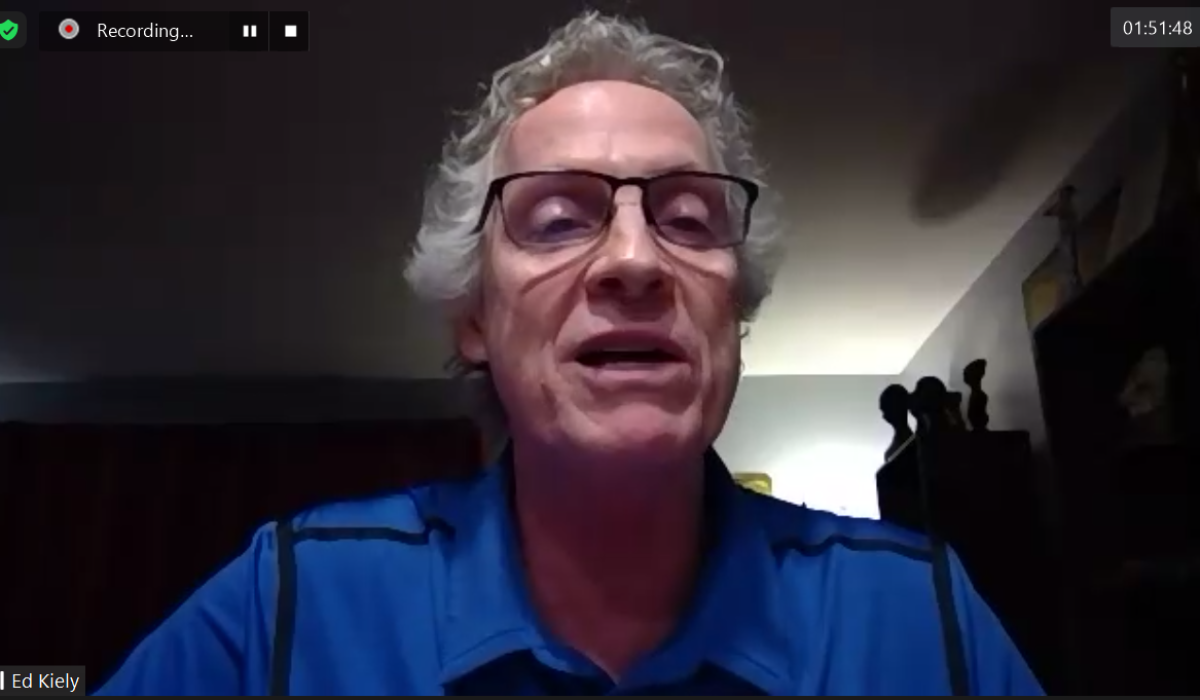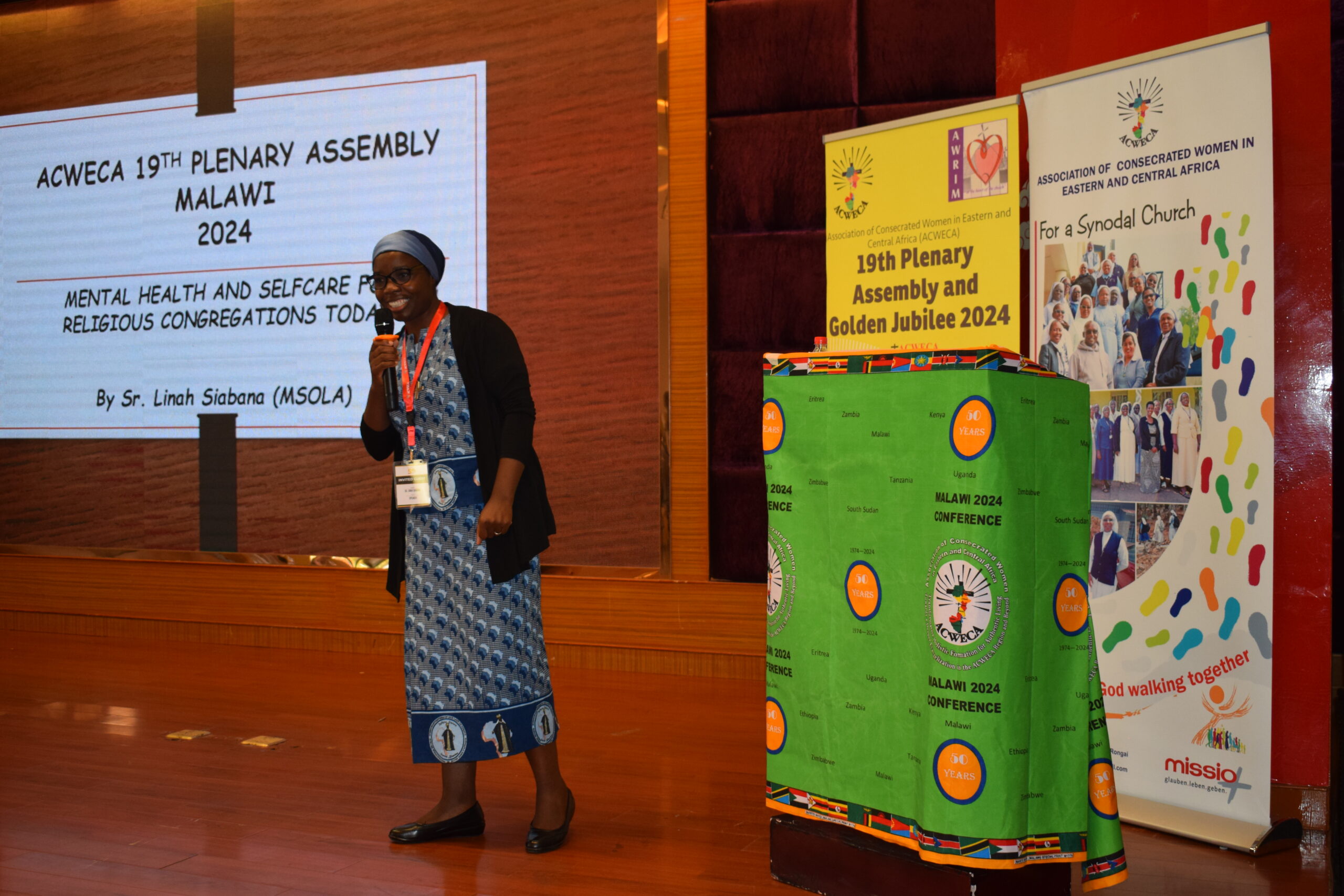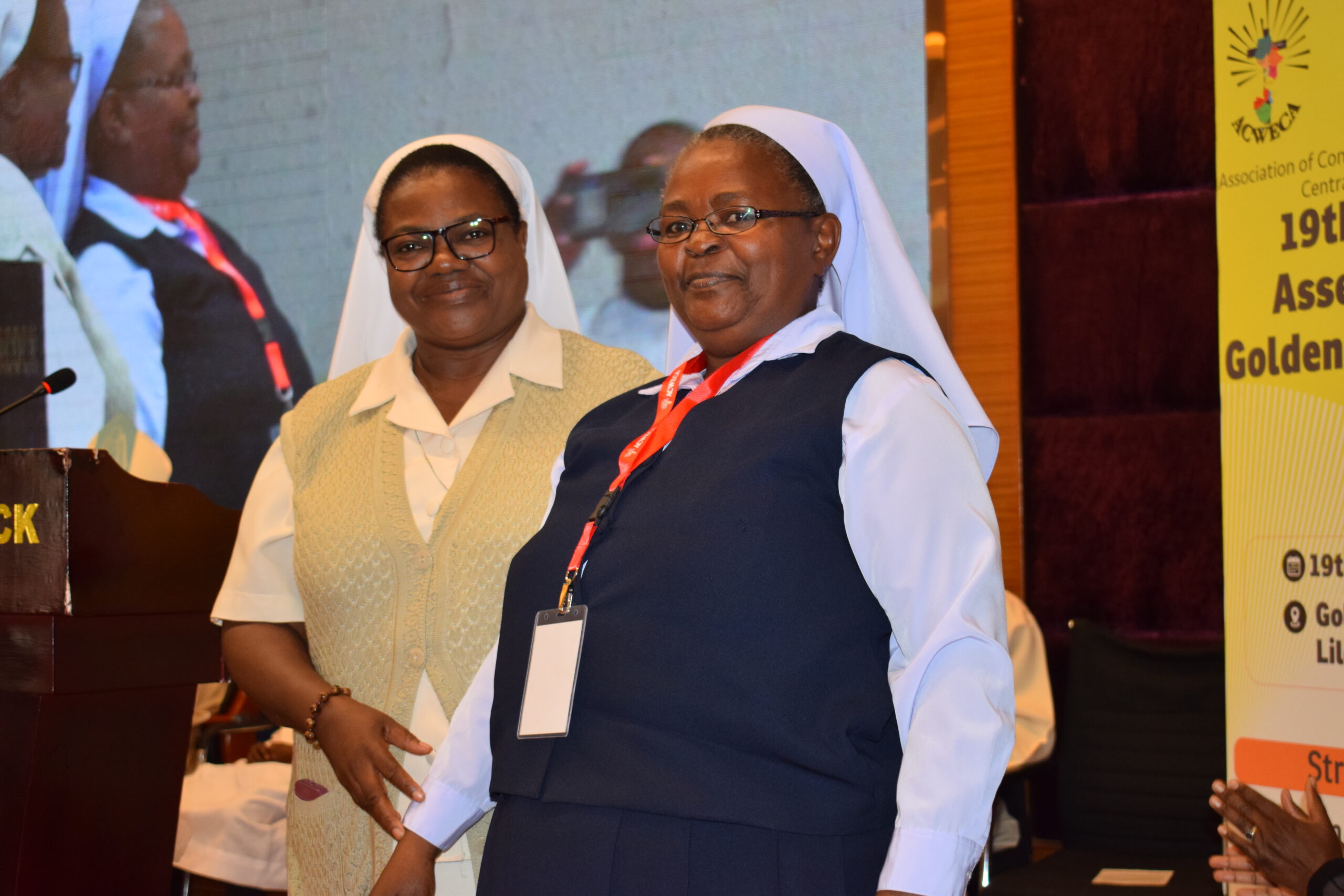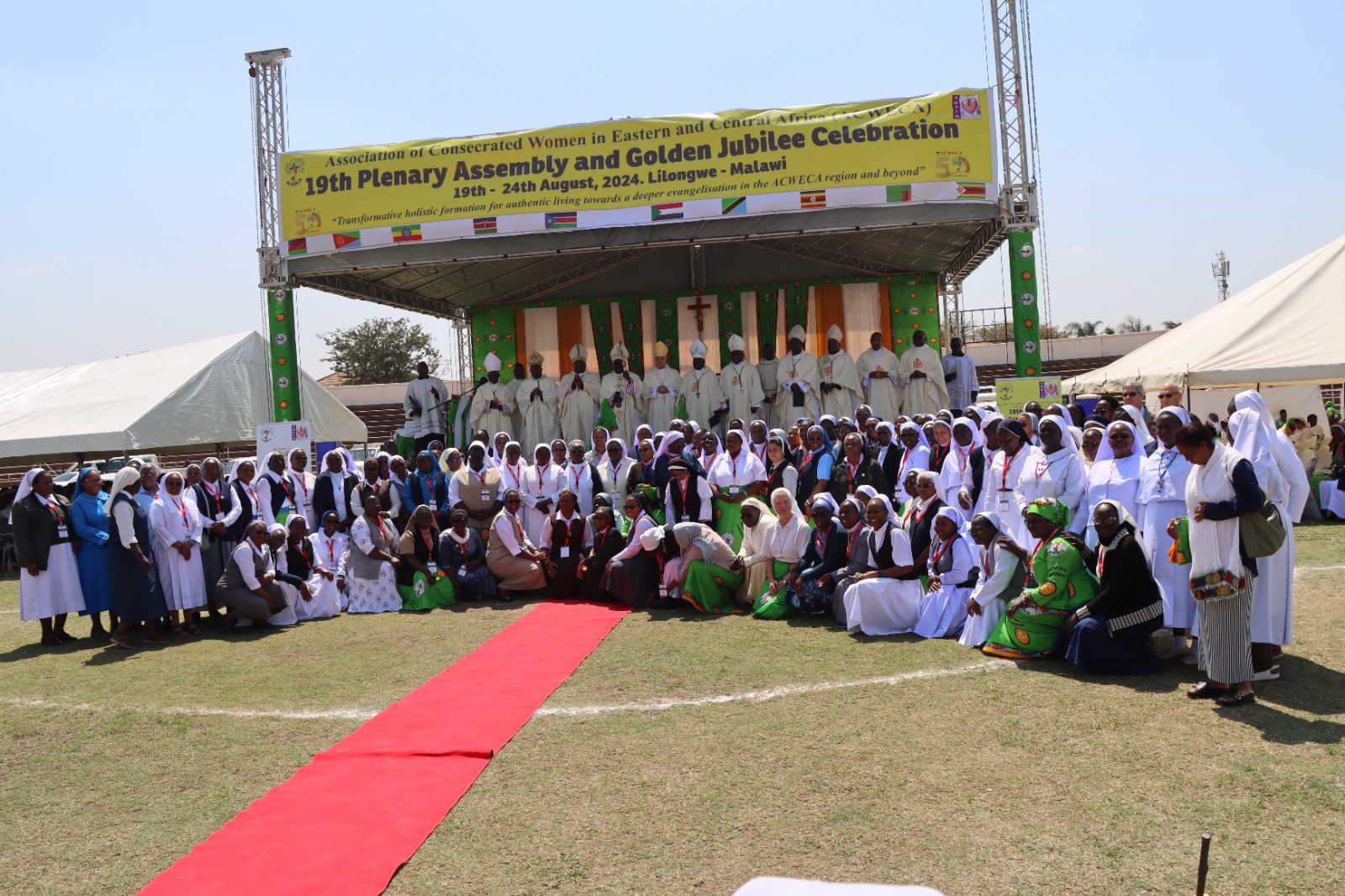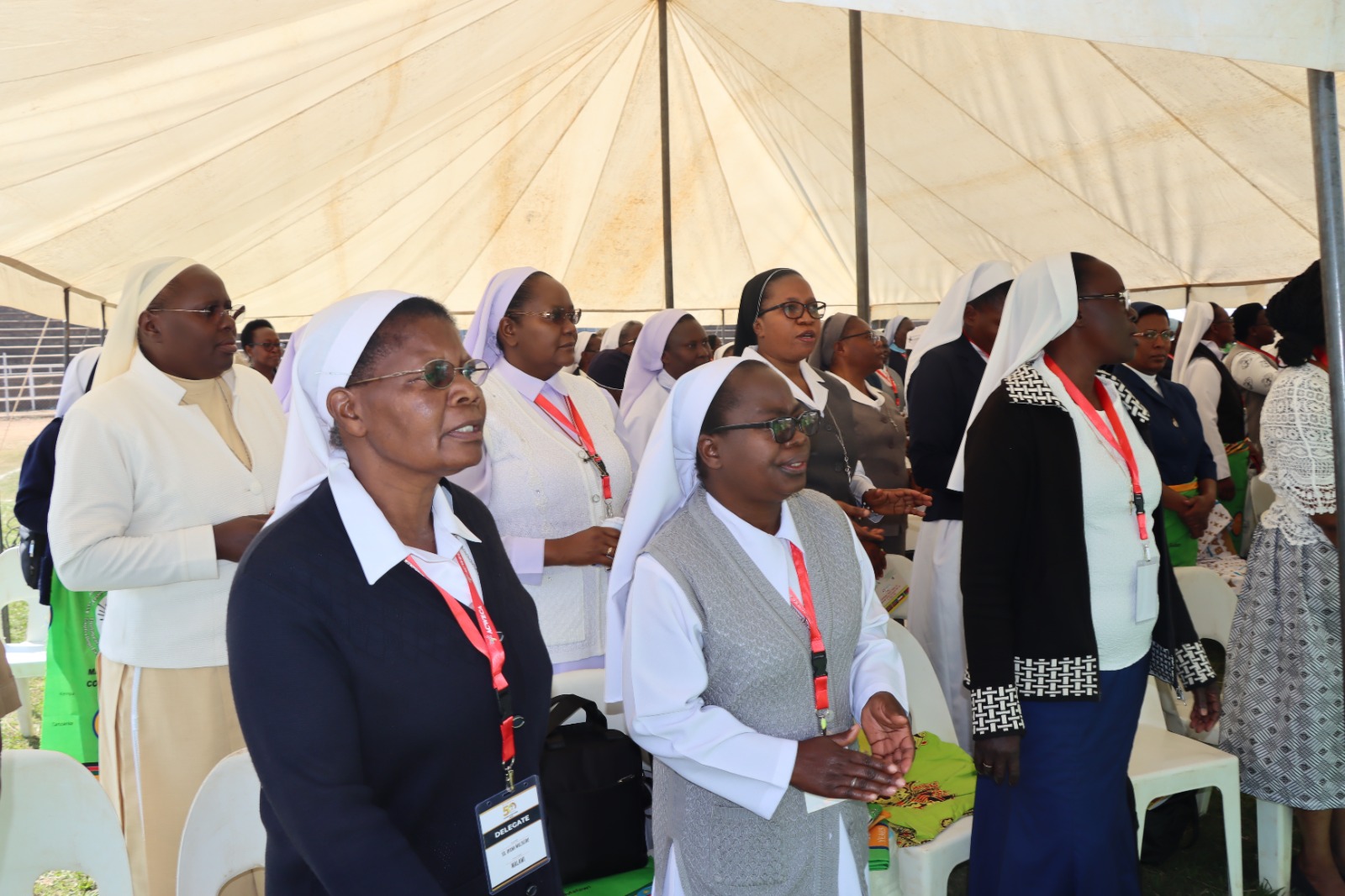Sr. Grace Candiru, MSMMC
The Catholic Church in the United States has committed slightly over half a million dollars in support of ACWECA’s programs at the regional Secretariat over the past couple of years. This was revealed by Mr Ed Kiely who represented the United States Conference of Catholic Bishops USCCB at the virtual 18th ACWECA Plenary Assembly currently being coordinated from Nairobi, Kenya.
“To date we have given a little over $650,000 in support of ACWECA central office and a variety of trainings for membership since 2012,” Kiely said of USCCB’s contribution.
Mr. Kiely who is also the Director of the Subcommittee for the Church in Africa was however quick to note that it was their collaboration and solidarity with the ACWECA Sisters that mattered most.
“Beyond funding, it is the collaboration and solidarity I have felt with the Sisters of ACWECA that have meant the most to me,” he affirmed.
He said he was pleased to have the privilege of sharing with the Sisters the experience and gratitude of the US Catholic Bishops, saying that he looks forward to a continued conversation, collaboration and learning ways to grow in solidarity and understanding.
Besides USCCB’s financial support to the Sisters, he said the Bishops had to date awarded nearly $31 million to Bishops’ conferences and regional associations including over $2.3 million in 2020, despite the Covid19 pandemic, in solidarity fund to the Church in Africa. He said the Subcommittee had distributed those funds through a grant process throughout Africa in support of significant pastoral projects.
Since the Solidarity Fund is a relatively new programme, he said they have tried to include certain parameters.
“We are interested in collaborating in a respectful way with the Church leadership in Africa and hence are wary of building dependencies or appearing to support situations that do not favour transparency or accountability,” Kiely firmly said.
He further explained that their office at the beginning only considered grant requests from national Episcopal conferences and regional associations mainly due to lack of funds and staff. It was, however, in 2012 that the subcommittee took a decision to begin considering grant requests from regional associations.
“Recognizing the important work of Religious Congregations in Africa, most particularly women Religious, the subcommittee took a decision to begin considering grant requests from the regional associations of Religious such as your association. This started an important collaboration, which we hope extends at least in some way, even if small for now, to many Congregations in the region,” he said.
Explaining the origins of the USCCB Subcommittee for the Church in Africa, he said the USCCB has had a long engagement with Africa and her particular Churches. He noted that it was after the First Synod on Africa and the post-Synodal Exhortation “Ecclesia in Africa” that American Bishops began to reflect on their relationship with their brother bishops in Africa.
He said the Bishops’ concern at that time was how they could enhance their interactions and exchanges to the mutual benefit of the Church in both continents. He said the Bishops began recognising the contribution African clergy, men and women and the faithful living in the US made.
He said the Bishops’ reflections in a pastoral letter entitled “A Call to Solidarity with Africa” published in 2001 played a key role in their next actions. The Bishops’ communication acknowledged the incredible vitality of the Church in Africa, appreciated its rich diversity in ethnic groups, languages, customs and cultures and the hope the African continent offers the world.
While the Bishops letter affirmed that a level of solidarity was already being expressed in clear and tangible ways through the untiring work of the Catholic Relief Services (CRS) and other direct partnerships between dioceses and parishes, it nevertheless acknowledged the challenges the African Church faced and pledged their support.
He said it was after the publication of that pastoral letter that the bishops in the US began considering formal engagements and ways to support the growing solidarity. He said the bishops in their familiarisation tours in Africa learned that while humanitarian aid was both welcomed and appreciated, it was insufficient to help the Church. This, according to them, was on account of the fact that the Church in Africa was experiencing remarkable growth and vitality.
So, the Bishops set up an ad hoc Committee on Africa to study the situation in 2004, and one of its first actions was to begin the Pastoral Solidarity Fund for the Church in Africa. This is the grant program that would offer financial assistance that would give the message of solidarity a practical expression.
He explained that it was parishes in the United States of America that support the Solidarity Fund through collections or other creative ways.
“It is a way for American parishes to grow in awareness regarding both the rich promise and the urgent needs of the Church in Africa today,” Kiely continued.
In 2006, the Committee members began formal visits to Episcopal conferences in Africa and by November 2016, the body of US Bishops voted for the ad hoc Committee to become a permanent Subcommittee to the Committee on National Collection.
Today, the Committee which oversees all the solidarity and grant making work of the USCCB is being coordinated by Mr. Ed Kiely as the director and two other staff members – Christelle Yong-Bassilekin and Fritz Zuger. The team, among other things manages the work of this subcommittee and, are entrusted with the task of building and maintaining relationships with church leaders in Africa.

